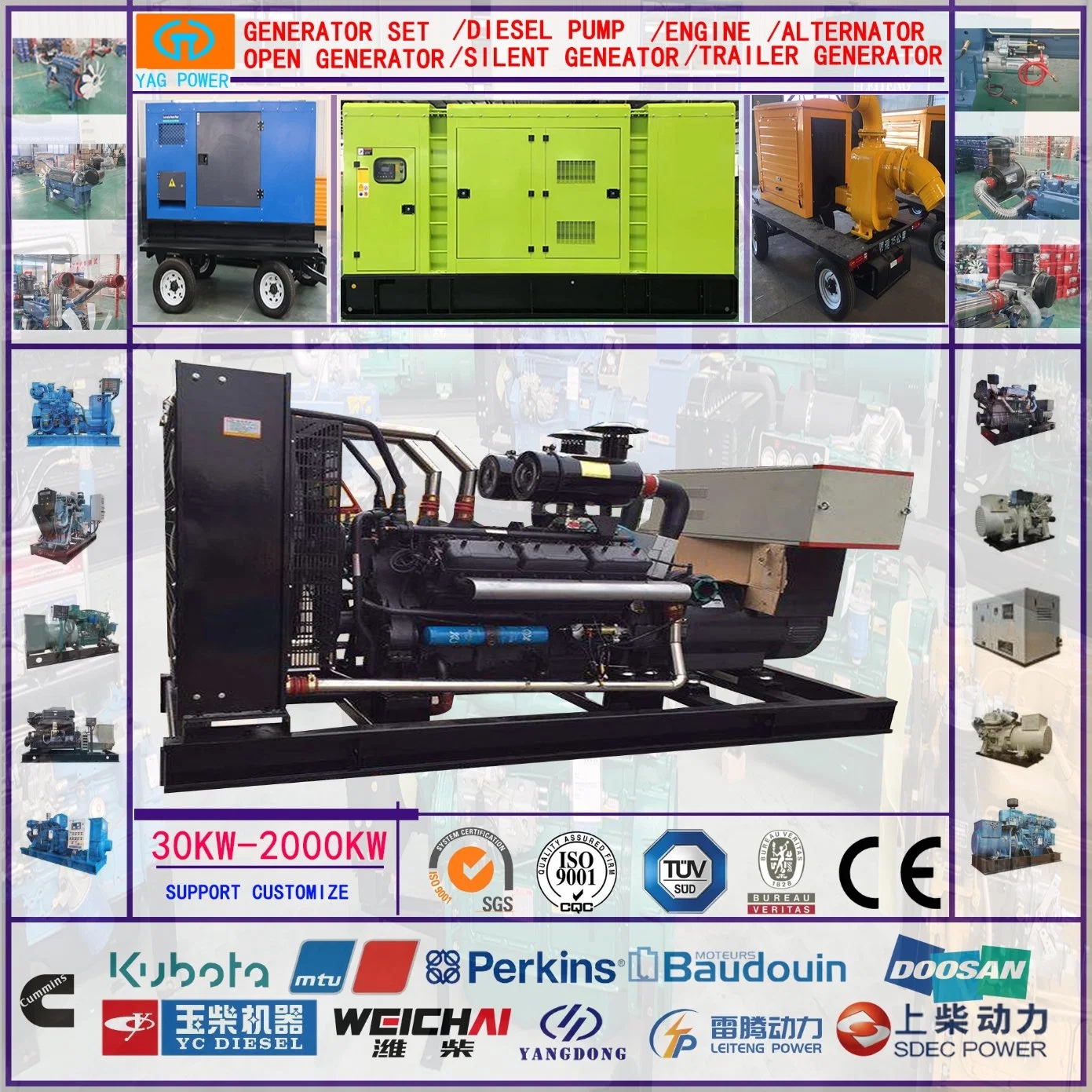Introduction
Diesel generators are widely used in various applications to provide backup power during emergencies or as the main power source in remote locations where grid power is unavailable. The reliability and performance of diesel generators are crucial for ensuring continuous power supply, especially in critical facilities such as hospitals, data centers, and telecommunications networks. To maximize the reliability and efficiency of diesel generators, condition monitoring plays a key role in detecting potential issues before they escalate into costly failures. This article explores the importance of condition monitoring for diesel generators, the various monitoring techniques available, and the benefits of implementing a comprehensive monitoring program.

Importance of Condition Monitoring for Diesel Generators
Diesel generators are complex machines that consist of various components such as the engine, alternator, cooling system, fuel system, and control system. These components are subjected to wear and tear over time due to continuous operation, environmental conditions, and other factors. Without proper maintenance and monitoring, diesel generators are at risk of unexpected failures that can lead to downtime, equipment damage, and costly repairs.
Condition monitoring involves the systematic monitoring of key parameters and performance indicators of diesel generators to assess their health and detect potential issues at an early stage. By monitoring the condition of critical components, operators can identify abnormalities, diagnose problems, and take proactive measures to prevent failures. This proactive approach helps in reducing downtime, extending the lifespan of the equipment, and optimizing the performance of diesel generators.
Monitoring Techniques for Diesel Generators
There are several monitoring techniques available for diesel generators, each focusing on different aspects of the equipment's condition. Some of the commonly used monitoring techniques include:
1. Vibration Analysis: Vibration analysis is a non-intrusive technique used to assess the mechanical condition of rotating components such as the engine, alternator, and cooling fan. By analyzing the vibration signatures of these components, operators can detect imbalances, misalignments, bearing defects, and other mechanical issues that may lead to failure.
2. https://www.lkpowerplant.com/product/special-offer-reliable-high-power-200kw-efficient-diesel-generator-set-for-industrial-use/ : Oil analysis involves sampling and analyzing the lubricating oil used in the engine to assess its condition and detect contaminants, wear particles, and other abnormalities. By monitoring the oil quality, operators can identify issues such as excessive wear, fuel dilution, and coolant leakage that can affect the engine's performance and longevity.
3. Temperature Monitoring: Temperature monitoring involves measuring the temperatures of critical components such as the engine, coolant, oil, and exhaust gases to identify overheating, cooling system failures, and other thermal issues. Monitoring temperature variations helps in preventing overheating, thermal stress, and related failures.
4. Fuel Monitoring: Fuel monitoring includes tracking fuel consumption, fuel quality, and fuel system performance to ensure proper fuel delivery to the engine. By monitoring fuel levels, pressure, and quality, operators can prevent fuel-related issues such as contamination, leaks, and fuel starvation that can impact the generator's operation.
5. Electrical Parameters Monitoring: Electrical parameters monitoring involves measuring voltage, current, frequency, and power factor to assess the electrical performance of the generator. By monitoring these parameters, operators can detect electrical faults, imbalances, and overloads that may lead to equipment damage or power quality issues.
Benefits of Implementing a Comprehensive Monitoring Program
Implementing a comprehensive monitoring program for diesel generators offers several benefits in terms of reliability, efficiency, and cost-effectiveness. Some of the key benefits include:
1. Early Fault Detection: By continuously monitoring the condition of diesel generators, operators can detect potential faults and abnormalities at an early stage before they escalate into major failures. Early fault detection allows for timely intervention and preventive maintenance to avoid costly downtime and repairs.
2. Improved Reliability: Condition monitoring helps in improving the reliability of diesel generators by identifying and addressing issues that can compromise their performance. By maintaining the health of critical components, operators can ensure that the generators operate reliably during emergencies and critical situations.
3. Extended Equipment Lifespan: Proactive monitoring and maintenance of diesel generators help in extending the lifespan of the equipment by minimizing wear and tear, preventing premature failures, and optimizing performance. A well-maintained generator is more likely to operate efficiently and reliably over its service life.
4. Reduced Downtime: By proactively monitoring the condition of diesel generators, operators can minimize unplanned downtime caused by unexpected failures. Preventive maintenance based on condition monitoring data helps in scheduling maintenance activities during planned outages, minimizing disruptions to operations.
5. Cost Savings: Implementing a comprehensive monitoring program can lead to cost savings by reducing maintenance costs, avoiding emergency repairs, and optimizing the use of resources. By addressing issues before they escalate, operators can avoid costly repairs, spare parts replacement, and downtime-related expenses.
Conclusion
Condition monitoring plays a crucial role in enhancing the reliability and efficiency of diesel generators by detecting potential issues at an early stage and implementing proactive maintenance measures. By monitoring key parameters such as vibration, oil quality, temperature, fuel, and electrical parameters, operators can assess the health of the equipment, identify abnormalities, and take preventive actions to prevent failures. Implementing a comprehensive monitoring program offers benefits such as early fault detection, improved reliability, extended equipment lifespan, reduced downtime, and cost savings. By prioritizing condition monitoring for diesel generators, operators can ensure continuous power supply, minimize risks, and optimize the performance of critical facilities.
